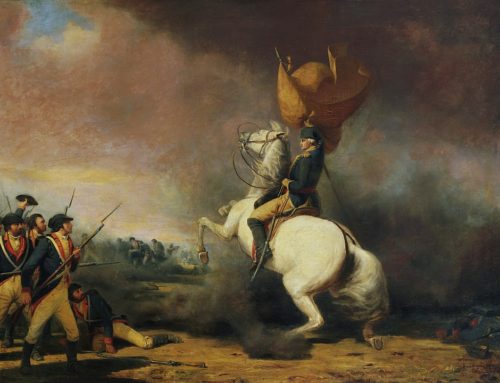By Tim Weiner
Legacy of Ashes provides a most compelling readable compilation of the many failures and very few successes of the CIA during its 60-year history. The author, a Pulitzer Prize Winner and writer for the New York Times, has written on American intelligence for twenty years. In a nutshell, the author explains why eleven presidents and three generation of CIA officers have been unable to understand the world, why nearly every CIA director has left the agency in worse shape than he found it, and how these failures jeopardized our national security. Dwight Eisenhower coined the term “legacy of ashes” because of his negative viewpoints of the CIA’s predecessor, the Office of Strategic Services that operated during World War II.
In a nutshell, the CIA has probably spent $ 1 Trillion dollars over its 60-year life span, sent at least a hundred thousand people to their deaths, purposefully deceived the President of the United States and Congressional leaders, has churned out thousands of phony documents, hidden its mistakes, and been led by a series of inept leaders. The CIA has directly and indirectly compensated many unsavory charlatans including many former Nazis many of whom worked as double agents providing key information to our enemies, particularly the Soviet Union. Under a key clause of the 1949 act that created the CIA, the CIA could let one hundred foreigners a year into the United States in the name of national security, granting them “permanent residence without regard to their inadmissibility under the immigration or any other law.” For example, we smuggled into our country Mikola Lebed, a notorious war criminal who had slaughtered Ukrainians, Poles, and Jews because according to Allen Dulles he was assisting “operations of the first importance.” We procured the service of almost any son of a bitch against Stalin, irrespective of their histories of collaborating with the Nazis. Needless to say, these malefactors turned out to be completely incompetent agents against the communists, sending many legitimate anti-communists directly into the waiting arms of the Communist intelligence apparatus. Most of the captured were killed instantly or fed us disinformation for years before being executed. These failures took place in Poland, the Soviet Union, China, Vietnam, North Korea, etc. We failed time and again to learn from our mistakes. “There is an old saying in poker that if you look around the table and you cannot find a sucker. You are probably the sucker.”
The CIA’s incompetence has been consistent for its entire existence. For example, even after the Soviets exploded their first atomic bomb, they assured Truman that the Soviet’s would not possess nuclear capability for another four years. Even after Chinese Communist “volunteers” invaded Korea, the CIA advocated strongly that Mao Zedong would never intervene in Korea. The CIA completely led misled Kennedy on the possibilities of success at the Bay of Pigs. They provided false hope to Germans, Poles, and Hungarians that America would militarily intervene if they revolted against their Soviet rulers. They failed to anticipate the fall of the Shah or Iran, the fall of Communism in Eastern Europe, 9/11 attacks, and misled the President about the “weapons of mass destruction” in Iraq.
The author feels that the failures of the CIA can be attributable to several issues: 1) We have employed people who knew nothing about the language or culture of countries under their surveillance 2) the CIA has operated outside of legal scrutiny be our elected representatives 3) the CIA has employed too few inexperienced personnel to cover effectively more than 100 targeted countries, 4) the CIA purse strings have never been properly monitored.
While the author feels that we need an effective CIA in order to maintain our security and world standing, I have a different conclusion after reading this book. First of all, I note the failure of Great Britain and the Soviet Union to maintain first rate military presence despite having excellent Foreign Service intelligence agencies. Secondly, despite either not having a Foreign Service from 1900-1940 or having inept ones after 1940, America’s presence during the twentieth century was so significant that many observers call the “twentieth century” the American Century. In essence, we achieved victories in World War I, World War II, and the Cold War, because we were fiscally solvent, and had the foremost economic engine in the world. In retrospect, countries such as Spain, France, Great Britain, and the Soviet Union lost their imposing military muscle because of overspending militarily. In essence, we need to ask the question can America currently afford the Billions of dollars allocated to our various security programs and military enterprises given our fiscal and trade deficits. History pointedly shows time and time again that financial irresponsibility leads ultimately to military decline.
During its sixty-year history, the CIA has had really only two dubious successes. Their overthrow of Mohammad Mossadeq, a legitimate nationalist who opposed British stealing billions of dollars of oil from Iran without proper compensation, and their overthrow of President Arbenz of Panama took place in the early 1950’s. In the case of Iran, ultimately the corrupt, inept Shah of Iran was overthrown despite possessing a formidable military cache. After the overthrow of Arbenz, dictators ruthlessly ruled Panama for over forty years. Moreover, we ultimately lost control over the Panama Canal. A detailed analysis of our operations in both Iran and Panama would show the real Keystone Cops muddling through. Moreover, “the promise to keep the operations secret” was never remotely kept.
In conclusion, today the CIA has fallen into disrepute. Whether a successor agency can handle properly its obligations to protect us from international terrorism remains a question mark. The thought that Bernie Kerik, a low life pal of Rudolph Giuliani, was proposed to head out National Security Agency provides a painful reminder of the pitiful number of qualified professionals we can muster for such an important role. We must also be mindful that we have finite financial resources to devote to the military. Stated differently, we must ask ourselves if given that we currently spend more than all other major countries combined on the military, “Are we getting a bang for our buck?” My suspicion is that we are wasting an incredible number of resources, and have so embedded in the American voters’ xenophobic fears that no politician seeking higher office can effectively reign in the military-industrial-lobbyist- congressional bloc.



